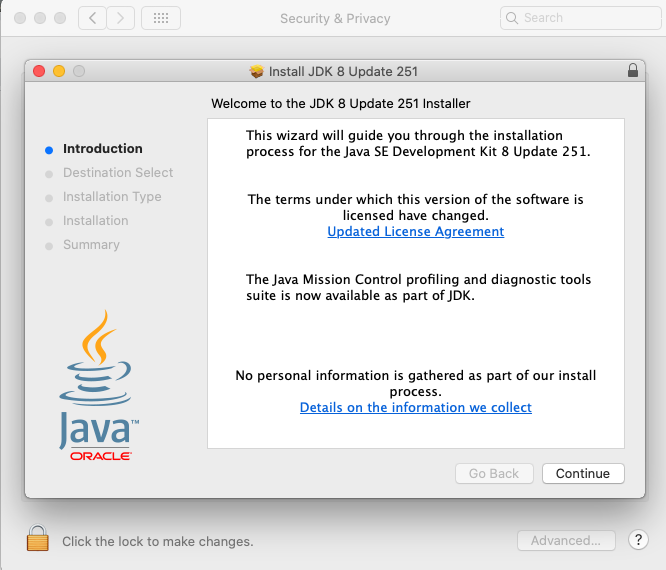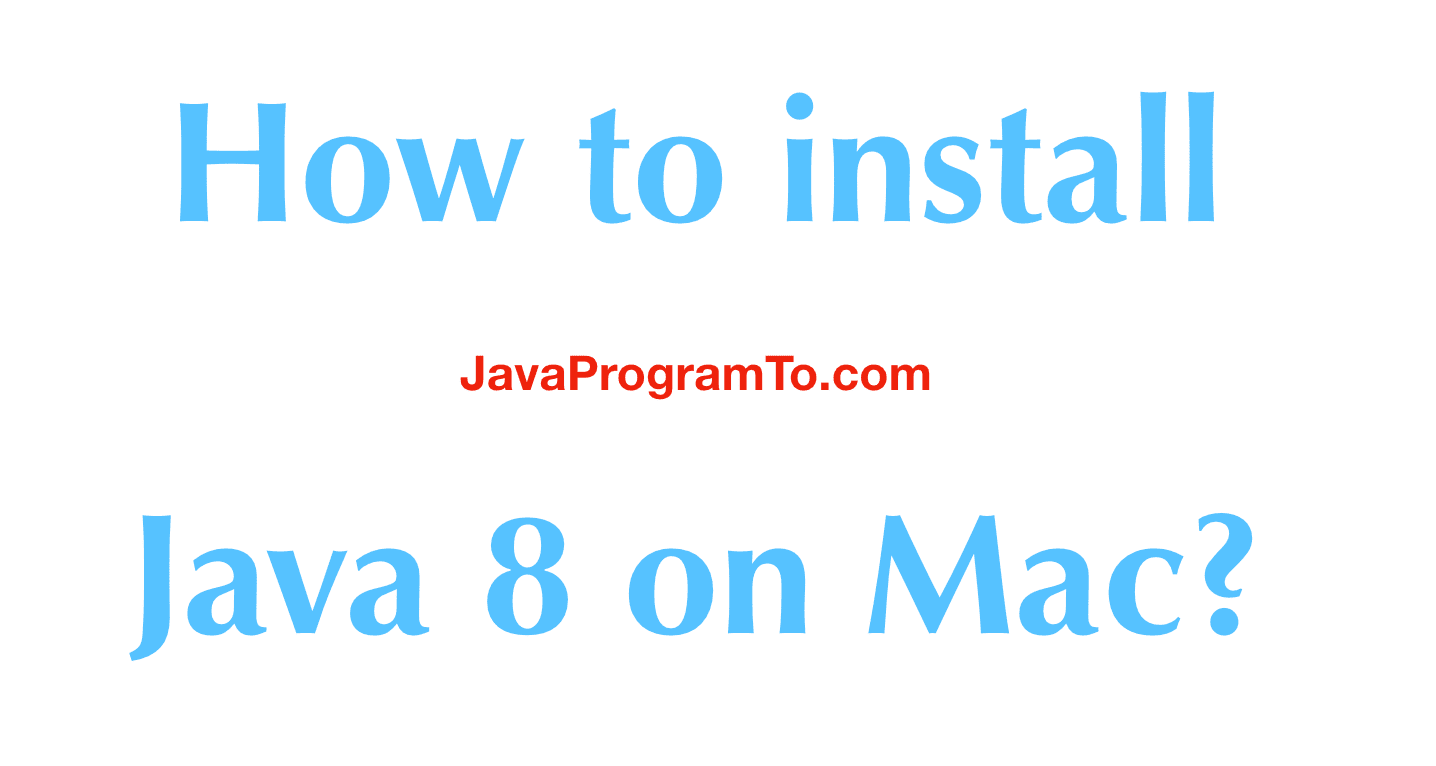

This answer is specifically if you use Intellij on a Mac Use a JDK that includes the JavaFX/OpenJFX libraries.Īt least two vendors provide JDK installers that include the JavaFX/OpenJFX libraries:.Include the necessary OpenJFX libraries within your development project and within your final app, or ….JavaFXīe aware that for JavaFX, you have two options: Just use an installer for Java as you would for many Mac apps.
Install java for mac os install#
But if new to Homebrew, skip it if your only goal is to install Java. If you already enjoy using the brew tool, proceed. No need for the Homebrew package manager. We are referring to the root Library folder that applies across all the user accounts on this Mac. We are not referring to /Users/your_user_name/Library/…. Note that this is not the Library folder within your home folder. In the Finder, choose Go > Go to Folder, and paste /Library/Java/JavaVirtualMachines/.
Install java for mac os download#

Everything in /usr/bin is one of these wrapper thingies that looks at JAVA_HOME and then runs the binary it finds there. which javac to see what that actually runs you probably see /usr/bin/javac. There are wrappers for all the common commands ( javac, too). It uses JAVA_HOME to decide which java to actually run. JAVA_HOME decides which java is used by some things, but the java you get when you just type java is /usr/bin/java, and that executable is actually just a wrapper that picks a java to run from amongst all installed versions. The -v option is mostly for scripting, and that's how we're using it here). The -V option lists all and is meant for your eyeballs, not for scripts. here, assign it to the JAVA_HOME env var. (the backticks mean: Run this then take the output of it and treat that as the 'value' of the expression. To 'override', you can use something like (depends on which shell you're using on your mac): export JAVA_HOME=`/usr/libexec/java_home -v 17` To see all installed javas, you can run: /usr/libexec/java_home -V

Also, yes, if you just run java without specifying which one you want, you so happen to get java13 here. the java8 to java9 transition broke a ton of stuff, much of it needless and much of it not reasonably expectable or fixable by libraries and apps, so a bunch of java apps and libraries only run on java8 - just an example). This is often required java is not backwards compatible (it tries to change little, but e.g. Java doesn't mind if you install multiple versions.


 0 kommentar(er)
0 kommentar(er)
